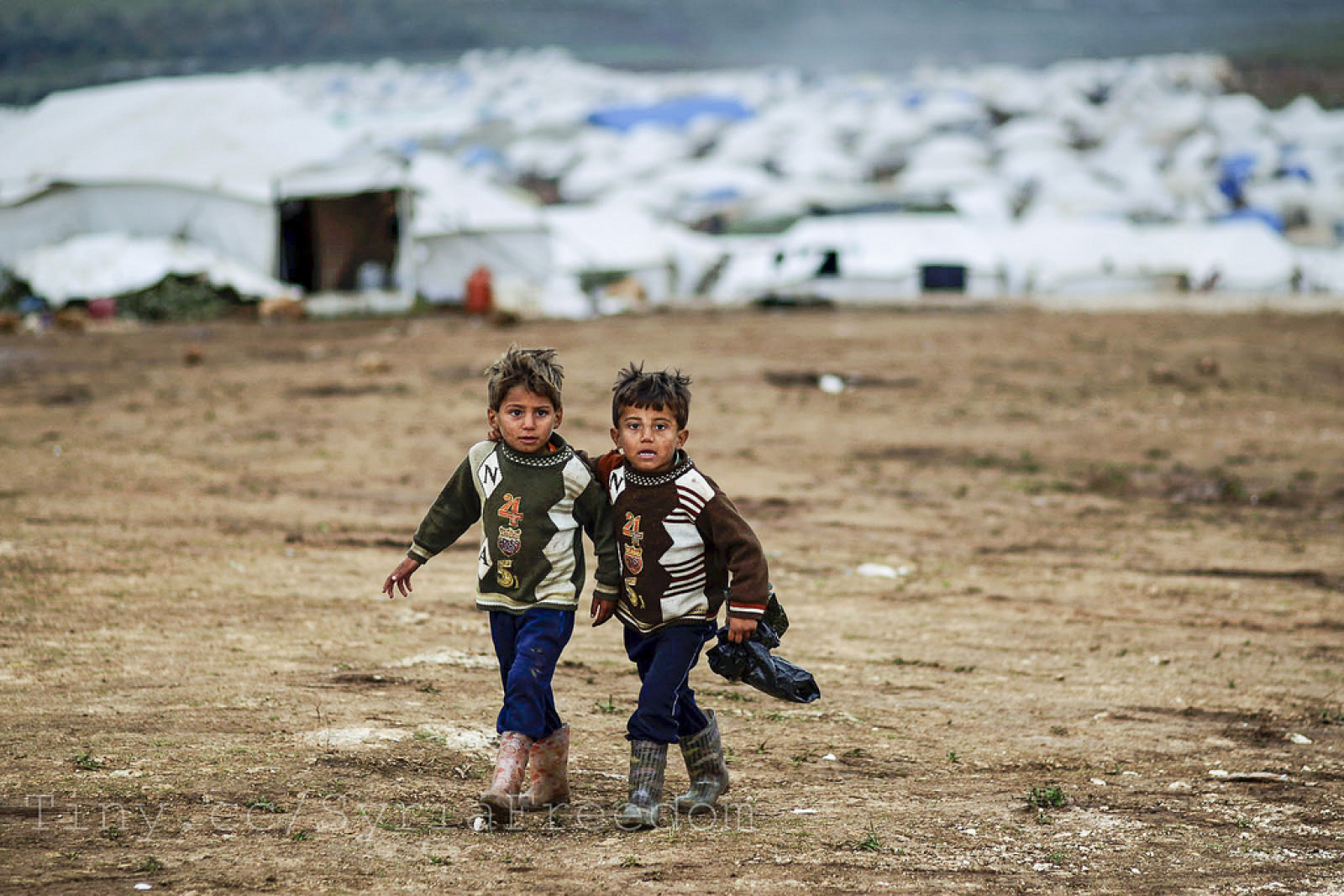
(Freedom House/ www.flickr.com/photos/syriafreedom/8309708775/ December 2012)
SHARE
Opposition-held areas in Syria provide an opening for civic activism and political expression that is not possible in parts of the country still controlled by the Assad regime. In these places, official government services no longer exist. To address this gap, NDI works with the Syrian Opposition Coalition (SOC) and the Syrian Interim Government (SIG), which along with local councils have stepped in to act as governing bodies and provide much-needed services to communities in crisis. NDI is also assisting Syrian civil society organizations, women’s groups, and individual activists to build their understanding of the fundamentals of democracy and develop their ability to organize and advocate for change. Through these efforts, NDI hopes to equip the country’s future leaders with the knowledge, experience, and resources they will need to build a reformed and democratic Syria following successful peace negotiations.
In the fall of 2016, NDI and a local partner conducted focus group research in 12 provinces across Syria to gauge the perspectives and priorities of regular citizens. After sharing the research findings with the SOC and SIG--as well as with other Syrian political groupings and provincial and local councils--NDI began to organize a series of policy forums at which policymakers, issue-area experts, and citizen groups could discuss ways to address three top citizen priorities: education, internally displaced persons (IDPs), and health care. Developing policy responses to these issues is essential in order to establish effective governance within Syria, both now and in a future transition process.
With NDI acting as a neutral convener, the nine forums are taking part over the course of several months in Istanbul, Gaziantep, and Syria. They provide an opportunity for opposition leaders to explain to citizens their approach to the identified priority issues and give details on their plans for addressing them. NDI has provided coaching to the SOC, SIG, and other opposition bodies to develop presentations on the issues under discussion, and is guiding them on how to refine existing policy measures and develop new policy positions in ways that resonate with the expressed needs and concerns of citizens inside Syria.
The first forums were held in December and addressed education policies and the challenges facing the educational process in opposition-held areas. Involving leaders of the SOC, SIG, relevant SIG ministry officials, education experts, and civil society, the forum served as a valuable starting point for more coordinated and inclusive efforts in the education sector going forward. The second series kicked off this past weekend, on January 28 and 29 in Istanbul and Gaziantep, and focused on programs and policy regarding IDPs.
After almost six years of war, according to UNHCR, there are 6.5 million Internally displaced persons inside of Syria, with a staggering 50 Syrian families being displaced every hour of every day since 2011.
The discussion this weekend aimed to address the problems and needs facing Syrian IDPs, while also discussing service delivery needs of Syrian refugees in neighboring countries. Abdul Ilah Fahd, Secretary General of the Syrian Opposition Coalition, opened the discussion by highlighting the difficult circumstances and challenges facing Syrian refugees and IDPs. Jawad Abu Hatab, head of the Syrian Interim Government, likewise highlighted the myriad psychological and social challenges facing these same groups, particularly lack of privacy in camps and unrecoverable legal documents. Les Campbell, NDI Middle East and North Africa Regional Director, stressed the importance of participatory policy-making efforts, such as these policy forums, to better address the challenges facing the Syrian people. The fact that these forums are based on direct input from citizens means that policy solutions emanating from them will be relevant to people’s lives and address their needs and priorities more directly
Bassam Quwatli, a Syrian activist who played a leading role in organizing the focus group research, said that financial issues topped the priorities of Syrian IDPs, adding that most of them expressed a strong desire to eventually return to their homes. Quwatli also talked about the struggle of many IDPs to get jobs and integrate into the societies in which they are now living.
The final forum, scheduled to take place in February in locations in both Turkey and Syria, will address health care concerns. During focus group discussions, most citizens reported access to at least one free hospital, but few medical facilities are adequately equipped. Furthermore, citizens struggle to access routine health care, since facilities tend to prioritize urgent care for fighters or civilians injured in the conflict. The discussion will allow citizens and policymakers a space to discuss solutions to this critical issue and brainstorm ways to improve service delivery in Syrian communities.
Though the war in Syria rages on, there is also reason to be hopeful for the future of the Syrian people once the fighting subsides. Through its work with thousands of Syrians over the last six years, NDI has witnessed Syrian citizens identifying and addressing the governance issues that help make their lives a bit better in the midst of conflict. By staying engaged, even when faced with such hardship, the people of Syria are sending a clear message: they will play an active role in shaping their own communities into more peaceful and democratic places whenever the opportunity emerges.


